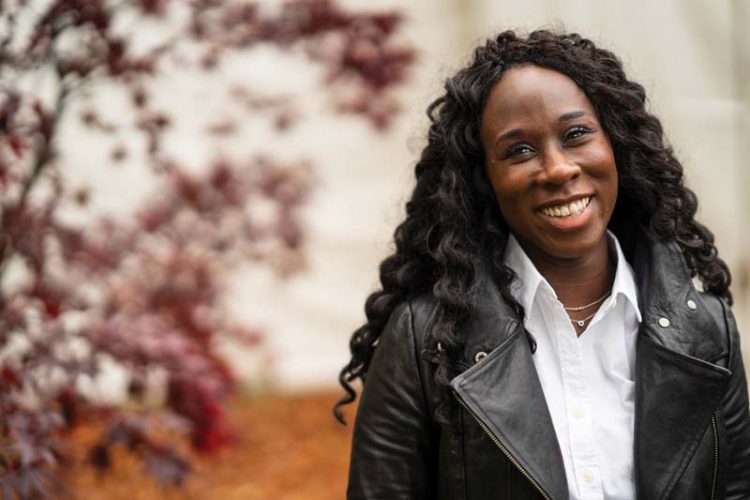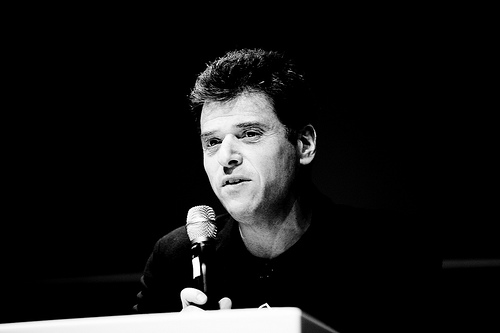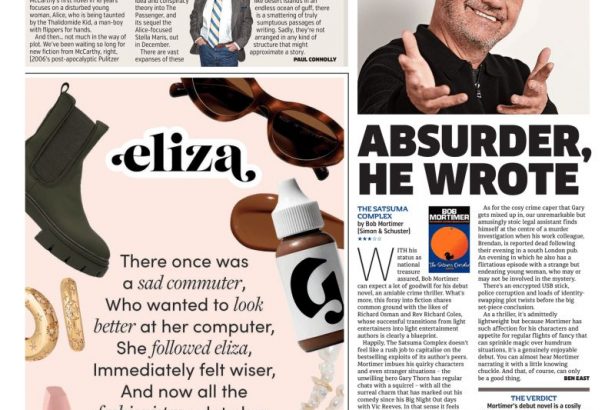In Esi Edugyan’s 2011 novel Half Blood Blues, black jazz musician Hieronymous Falk is arrested and incarcerated in a German concentration camp. The follow-up, Washington Black, features the titular character trying to escape a slave plantation in Barbados. Weighty, tough subjects to take on, then – and even now, Edugyan still seems to take a deep breath when talking about them.
“It was daunting,” she says. “Though I don’t think I could have written either novel if I’d begun with the notion that I was writing a deeper exploration of these subjects. I always begin with character, with the desire to explore historical figures or groups whose marginalisation hasn’t been fully expressed, and I go from there. It’s the circumstances of their lives that lead me to write about these larger historical atrocities.
“But mostly… I want readers to enjoy my books too!”
Which is the conundrum Edugyan grapples with – incredibly successfully – in her Booker-shortlisted fiction. Once Washington Black leaves the plantation, the book turns into a mythic adventure story, with hot-air balloon journeys to the Arctic, North Africa and Europe.
The novel had its initial roots in a series of bizarre, byzantine criminal trials that took place in England from the 1860s to the 1890s, which gave Edugyan the confidence that she could exaggerate that tone in a slavery story.
“The Tichborne Claimant affair [which was made into a film in 1998] had its own fantastical quality, and perhaps it was that stretching of the bounds of realism that allowed me to push even further to my own place of strangeness,” she agrees. “I didn’t set out to write an epic story with shifting settings and characters – the material just forced its way there. I guess I’d like people to feel they’ve accompanied these people on their journeys, but they are deliberately journeys that no doubt look very little like their own daily lives.”
Edugyan, who grew up in a Ghanaian family in Calgary, Canada, shows a deep understanding of people in desperately inhuman circumstances somehow managing to maintain their humanity.
Washington Black is a brilliant artist who won’t ever have the chance to be fully acknowledged for his gifts, due to the era in which he lives. He has to experience great savagery, which Edugyan is unapologetic in depicting.
“It can be a tricky thing, to write violence in a way that feels warranted and not excessive,” she admits. “Especially when most of that violence occurs right at the beginning of the narrative. How do you not send the reader fleeing?”
Edugyan processed that question by being true to the historical record and faithfully depicting the brutality of slavery in as unadorned a way as possible. That way, she felt, she could honour those lost lives.
“Both books are about people struggling to retain not only their self worth within societies that seek to strip them of any sense of belonging, but also about trying to hang on to goodness,” she adds. “The characters are in the end able to do this – albeit with varying degrees of success. Washington Black might end up being free, but that comes with an attached guilt, rage and grief. So it was his journey towards psychological freedom which interested me – whether he fully achieves that by the end I don’t know. But he’s on the way there.”


